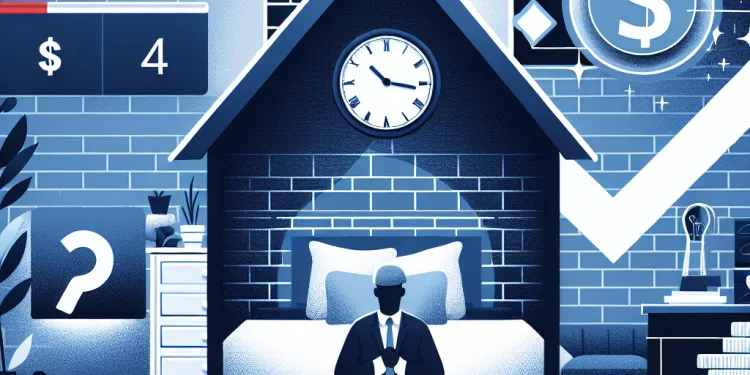
Find Help
More Items From Ergsy search
-
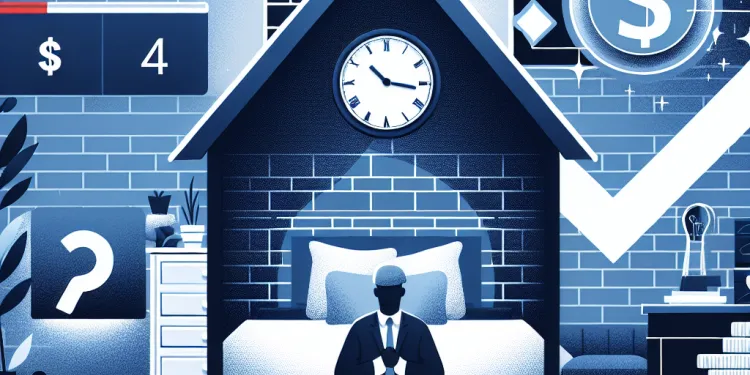
Addressing the Rising Homelessness Crisis
Relevance: 100%
-

Impact of UK Housing Crisis on Local Communities
Relevance: 72%
-

Addressing the Housing Crisis: Current Challenges and Solutions
Relevance: 56%
-
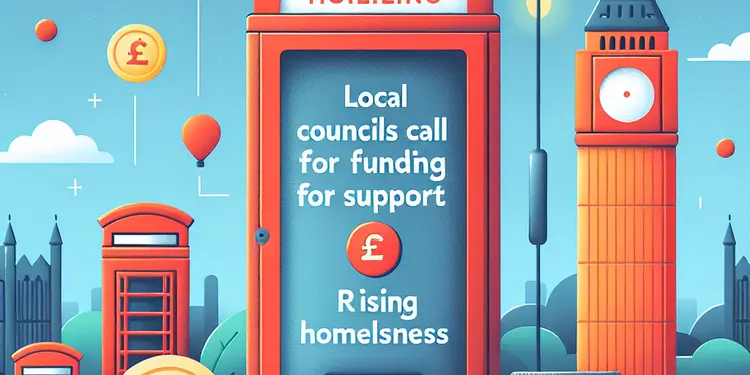
Local Councils Call for More Funding to Support Rising Homelessness
Relevance: 48%
-

Navigating the UK Cost of Living Crisis: Tips for Families
Relevance: 45%
-

Mental Health Impact of Cost of Living Crisis and Support Resources
Relevance: 42%
-

Addressing the Cost of Living Crisis: Community Support and Resources
Relevance: 41%
-

UK's Elderly Population Faces Growing Loneliness Crisis
Relevance: 38%
-
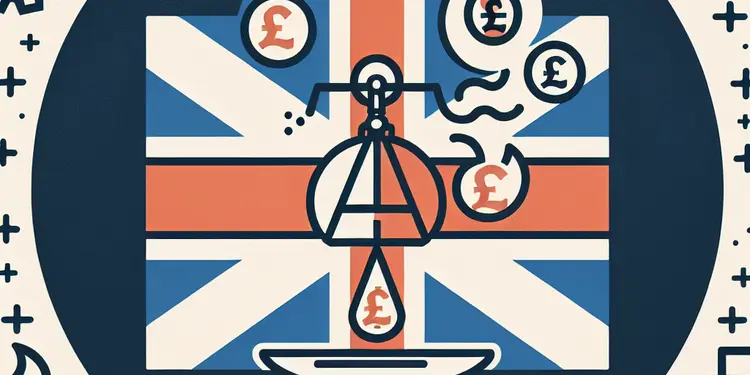
Legal Aid Cuts: Campaigners Warn of Access to Justice Crisis
Relevance: 32%
-

What are the plans for handling homelessness?
Relevance: 31%
-

Cost of Living Crisis: Supermarkets Promise More Discounts for Shoppers
Relevance: 30%
-

GPs Warn Antibiotic Overuse Could Lead to Superbug Crisis
Relevance: 27%
-

What are the potential long-term impacts of housing benefit cuts?
Relevance: 23%
-

Impact of Housing Shortage on Local Communities
Relevance: 22%
-

What are the proposed Cuts to Housing Benefits Amid Rising Rents?
Relevance: 22%
-

Who will be most affected by the proposed cuts to housing benefits?
Relevance: 19%
-
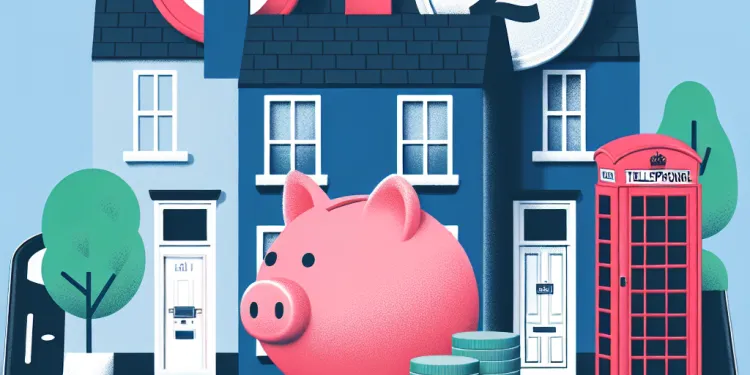
How will the proposed cuts impact tenants?
Relevance: 17%
-

Is there a plan to offer additional support to offset housing benefit cuts?
Relevance: 17%
-
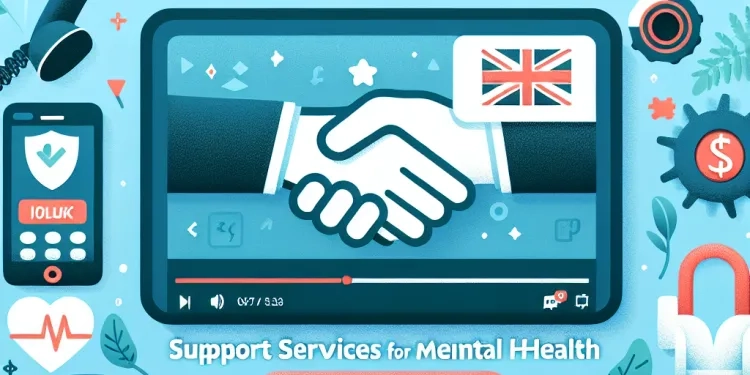
Support Services for Mental Health Amid Economic Uncertainty
Relevance: 16%
-

What is the main reason for the proposed cuts to housing benefits?
Relevance: 16%
-

SLaM's Suicide Prevention, Learning and Support Strategy
Relevance: 16%
-

How does inflation affect the situation with housing benefits and rents?
Relevance: 15%
-

Impact of Cost of Living on UK Communities
Relevance: 15%
-

Mental Health Support for Families: Resources and Guidance
Relevance: 15%
-

Mental Health Resources for Families
Relevance: 15%
-
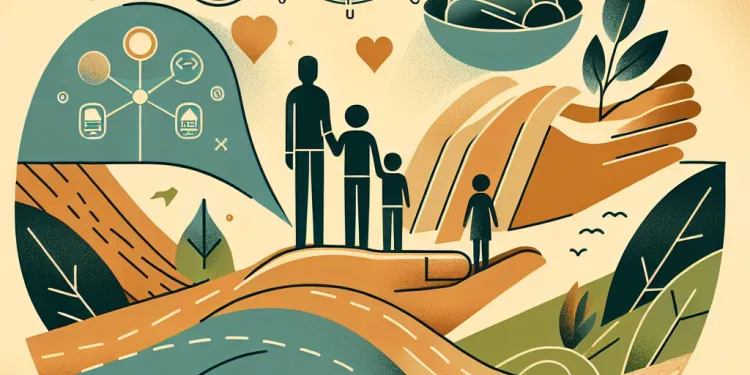
Navigating Mental Health Services for Children and Adolescents
Relevance: 14%
-

Mental Health Support Services in the UK
Relevance: 14%
-

Accessing Mental Health Support Resources in the UK
Relevance: 13%
-

Mental Health Support for Families: Resources and Strategies
Relevance: 13%
-

What is the relationship between rising rents and housing benefit cuts?
Relevance: 12%
-

New Government Benefits for Low-Income Families
Relevance: 12%
-

Treating anxiety and depression - www.slam.nhs.uk
Relevance: 12%
-
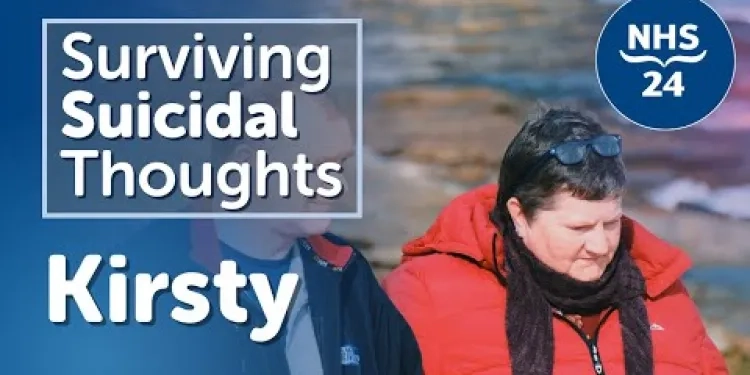
Suicidal Thoughts - Kirsty
Relevance: 12%
-

What other countries have criticized WHO aside from the US?
Relevance: 11%
-

Are there any government programs that can help me avoid eviction?
Relevance: 11%
-
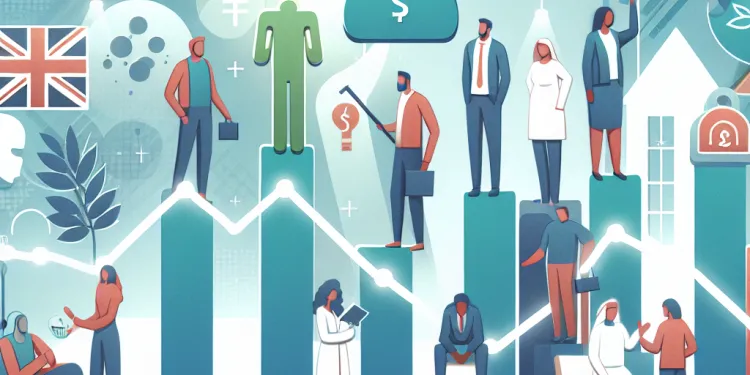
Mental Health Services Struggle to Cope Amid Record Demand
Relevance: 11%
-
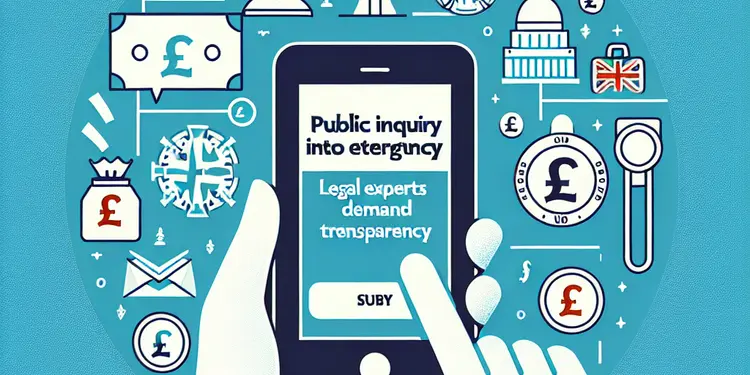
Public Inquiry into States of Emergency: Legal Experts Demand Transparency
Relevance: 11%
-

Mental Health Support for Families: Resources and Helplines
Relevance: 10%
-

Did the US propose reforms to the WHO before deciding to leave?
Relevance: 10%
-

Local Councils Struggle with Increasing Demand for Welfare Support
Relevance: 9%
Addressing the Rising Homelessness Crisis
Understanding the Homelessness Crisis in the UK
Homelessness has been a persistent issue in the United Kingdom, with recent years witnessing a significant rise in the number of people without a permanent place to call home. This crisis is multifaceted, involving a mixture of economic, social, and personal factors. The lack of affordable housing, rising living costs, and inadequate social services have collectively exacerbated the situation, leaving thousands of individuals and families vulnerable.
The Impact of Economic Factors
The economic landscape has a pronounced impact on homelessness. Housing prices have surged, while wages have stagnated, making it difficult for many to afford stable accommodation. Additionally, cuts to welfare and benefits have stripped many of the financial support they relied upon. The increasing cost of living further aggravates these economic pressures, pushing more people to the brink of homelessness. Addressing these economic challenges requires coordinated policy interventions aimed at increasing affordable housing stock and ensuring fair wages.
The Role of Social Services and Support Systems
Social services play a crucial role in preventing and addressing homelessness. However, budget cuts have reduced the availability and quality of these essential services. Mental health support, addiction services, and employment assistance are all critical components in providing a safety net for vulnerable populations. Investing in robust social services can help prevent homelessness before it starts and provide vital support for those already affected. Collaboration between government agencies, non-profits, and community organizations is essential to create an effective support network.
Innovative Solutions and Community Initiatives
Innovative solutions and community-driven initiatives offer hope in addressing homelessness. Housing First programmes, which provide permanent housing solutions followed by supportive services, have shown promising results. Additionally, community initiatives such as temporary shelters, food banks, and outreach programmes are crucial in providing immediate relief and support. Embracing innovative housing solutions, such as modular homes and co-housing projects, can also contribute to alleviating the crisis.
The Importance of Public Awareness and Advocacy
Raising public awareness and advocating for systemic change is pivotal in combating homelessness. Media campaigns, public forums, and advocacy groups can help highlight the issue and influence policy decisions. Engaging the public and encouraging community involvement fosters a collective effort towards finding lasting solutions. Through increased awareness and advocacy, society can better understand the complexities of homelessness and work towards creating a compassionate and inclusive environment for all.
Addressing the Rising Homelessness Crisis
Understanding the Homelessness Crisis in the UK
In the UK, more people are becoming homeless. This means they do not have a safe place to live. Several things cause this problem, like money troubles and not enough homes. Houses are expensive, living costs are high, and there are not enough help services for people. Many families are struggling because of this.
The Impact of Economic Factors
Money problems are a big reason why people become homeless. The price of houses is going up, but people are not earning more money. This makes it hard to pay rent. Cuts to benefits mean less money for people who need it. Prices for everyday things are also rising. To help, we need more affordable homes and good pay for everyone.
The Role of Social Services and Support Systems
Social services help stop homelessness. But with less money for these services, many people do not get the help they need. Things like mental health help, addiction support, and job advice are important. Putting money into these services can stop homelessness from happening. Working together with government help, charities, and local groups is important.
Innovative Solutions and Community Initiatives
New ideas and community help give hope. "Housing First" means giving homes first and then support after. Communities also help with shelters, food banks, and outreach. New housing ideas like small modular homes and shared living spaces can help too.
The Importance of Public Awareness and Advocacy
Telling more people about homelessness can help. Things like media stories, public talks, and advocacy groups can make a big difference. Getting more people to care and join in can help find solutions. By being aware, everyone can understand the problem better and help make a kind place for everyone to live.
Frequently Asked Questions
What are the primary causes of homelessness in the UK?
The primary causes of homelessness in the UK include lack of affordable housing, poverty, unemployment, mental health issues, substance abuse, and changes in personal circumstances such as relationship breakdowns or domestic abuse.
How many people are currently homeless in the UK?
As of the latest reports, approximately 280,000 people are homeless in the UK, including those in temporary accommodation and rough sleepers.
What is the government doing to address homelessness?
The UK government has launched several initiatives, such as the Rough Sleeping Initiative and the Homelessness Reduction Act, to improve support services, increase funding for shelters, and provide more long-term housing solutions.
What support is available for homeless individuals?
Support includes emergency shelters, hostels, day centres, support with mental health and substance misuse, employment assistance, and housing services provided by government and charity organisations.
How can I help someone who is homeless?
You can help by contacting local homelessness services, offering food or clothing, volunteering at shelters, donating to charities, or simply having a conversation and treating them with respect.
What is 'Housing First' and how does it help?
'Housing First' is an approach that prioritises providing permanent housing to homeless people as the initial step, rather than making it contingent on addressing other issues like substance abuse or mental health.
Are homelessness rates increasing in the UK?
Yes, homelessness rates have been increasing, partly due to economic factors like rising rent prices and inadequate supply of affordable housing. The COVID-19 pandemic also exacerbated the situation.
What is the role of local councils in tackling homelessness?
Local councils in the UK are responsible for providing homelessness services, including emergency accommodation, support services, and ensuring that homeless individuals have access to benefits and assistance.
How does mental health impact homelessness?
Mental health issues can be both a cause and a consequence of homelessness. Mental illnesses can lead to job loss and relationship breakdowns, and living without stable housing can worsen mental health conditions.
What are the legal rights of homeless individuals in the UK?
Homeless individuals have rights under the Homelessness Reduction Act 2017, which obligates councils to provide help to secure housing. Vulnerable people, especially those with children or disabilities, have additional protections.
What is temporary accommodation?
Temporary accommodation is housing provided by local councils for people who are statutorily homeless while they await more permanent housing solutions. This can include hostels, hotels, or other short-term housing options.
How does the public view homelessness, and how can attitudes be changed?
Public perception can often be negative, viewing homelessness as a result of personal failure. Changing attitudes involves increasing awareness, education about the causes, and encouraging empathy and support.
What are 'hidden homeless'?
'Hidden homeless' refers to people who do not show up in official statistics because they are staying with friends, family, or in insecure or unsuitable housing, rather than on the streets or in shelters.
How do homelessness charities assist those in need?
Homelessness charities provide a wide range of services including emergency shelter, food, clothing, counselling, advocacy, employment training, and support in securing permanent housing.
What long-term strategies are needed to solve homelessness?
Long-term strategies include increasing the availability of affordable housing, improving mental health and substance abuse services, ensuring stable employment opportunities, and creating comprehensive social safety nets.
Why do people become homeless in the UK?
Here are some reasons why people might not have a home:
- They don’t have enough money.
- They lose their job.
- Families have problems and can't stay together.
- Not enough houses for everyone.
- Some people have health problems.
To understand better, you can:
- Watch videos about homelessness.
- Ask someone to explain it to you.
- Look at pictures that show why people might not have a home.
People can lose their homes for many reasons in the UK. Here are some main reasons:
- Houses and apartments cost too much money.
- Some people do not have enough money to live.
- Some people cannot find a job.
- Some people have problems with their mental health.
- Some people have problems with drugs or alcohol.
- Changes in personal life, like breaking up with a partner or family problems, can also make people lose their homes.
Here are some tips to help if you are struggling:
- Talk to someone you trust about your problems.
- Look for support groups in your community.
- Ask for help from local services.
- Use online resources to find advice and support.
How many people do not have a home in the UK right now?
Right now, there are around 280,000 people in the UK without a home. This number includes people staying in temporary places and those sleeping outside.
What is the government doing to help people without homes?
The government wants to help people who do not have a home. They work on different plans to solve this problem.
Here are some things they do:
- They build more places where people can live.
- They give money to help people find a home.
- They help people get jobs so they can pay for a place to live.
- They talk to experts to find better ways to help.
If you want to know more, you can ask for help from someone you trust. There are also websites and places that can give more information.
The UK government is helping people who do not have a home. They have started some new programs. These programs are to help people find places to sleep, give more money to shelters, and find homes where people can live for a long time.
What help can homeless people get?
Homeless people can get help from different places. Here is a simple list of where they can find support: 1. **Shelters**: These are safe places where homeless people can sleep. They can get meals and sometimes other help, too. 2. **Soup Kitchens**: These places give free meals to people who need them. 3. **Community Centers**: These places can give advice and sometimes offer job training or help with other needs. 4. **Charities**: Many charities help homeless people by giving clothes, food, and other things they need. 5. **Government Programs**: Some programs can help with finding a home, getting a job, or getting money to buy food. It's okay to ask for help. People want to help you, and these places are there to make things better.You can get help from special places like emergency shelters and hostels. There are also day centres where you can go during the day. They can help with feeling better if you're sad or worried. They can also help if you have trouble with drinking or drugs. You can get help finding a job too. There are people and groups, like the government and charities, who want to help you find a home.
How can I help someone who has no home?
Do you want to help someone who has no place to live? Here are some things you can do:
- Give Food: Offer something to eat or a drink.
- Donate Clothes: Share clothes you don’t need, like warm jackets or socks.
- Show Kindness: Smile and talk with them. Being nice can make them feel better.
- Tell an Adult: Let someone you trust know so they can help too.
- Contact a Shelter: Find a nearby shelter that can give them a place to stay.
These are simple ways to help. You can also make pictures or writes notes, using them to show you care.
You can help people without homes by doing these things:
- Contact places that help people without homes.
- Give food or clothes to them.
- Help out at places where they can sleep.
- Give money to groups that help.
- Talk to them and be nice.
Useful tools:
- Use pictures or symbols to help explain.
- Break tasks into small steps.
- Repeat information if needed.
What is 'Housing First' and how does it help?
'Housing First' is a way to help people without homes. It gives them a place to live first.
After they have a home, they can get more help if they need it.
This way, it is easier to solve other problems like finding a job or going to school.
Supportive tools: Someone to talk to or help finding a job can be good.
The idea of 'Housing First' means giving homes to people without homes before anything else. It's more important to find them a place to live first, not later. They don’t have to sort out other problems like drinking too much or feeling sad before getting a home.
If it's hard to read, you can also use tools that read the text out loud to you. Listening can help understanding!
Is homelessness going up in the UK?
Yes, more people are becoming homeless. This is because rent is getting more expensive and there are not enough cheap homes. The COVID-19 pandemic made this problem worse.
What Do Local Councils Do to Help Homeless People?
Local councils are there to help people who don't have a home. They can offer a place to stay and advice. You can talk to them if you need help. If it is hard to understand, ask someone to explain. A friend or a helper can support you.Local councils in the UK help people who are homeless. They find places for homeless people to sleep, give them support, and help them get money and other help they need.
How does mental health affect being homeless?
People who feel very sad, worried, or confused may find it hard to keep a home.
It is important to talk to someone who can help, like a doctor or counselor.
Friendly services can help people find a home and take care of themselves.
Mental health problems and being homeless are linked. Mental health problems can make people lose their jobs and have problems with friends or family. Not having a home can make mental health problems even worse.
What can homeless people do by law in the UK?
People who do not have a home have rights. There is a law called the Homelessness Reduction Act 2017. This law says that councils must help people find a place to live. People who have children or disabilities must get extra help.
Tools like using pictures with words, listening to audiobooks, or using apps that read text out loud can also help make reading easier.
What is temporary accommodation?
Temporary accommodation is a place where someone stays for a short time. It is not a permanent home.
For example, when people have no home, they might live here until they find a new place to live.
Tools like pictures or simple words can help people understand. Using audio or videos can also help explain things better.
Temporary accommodation means a place to live for a short time. It is given by local councils to people who do not have a home. People stay there until a more permanent home is found. This can be in places like hostels, hotels, or other short-term housing.
What do people think about homelessness, and how can we change their minds?
Homelessness is when people do not have a home to live in. Many people have different ideas about why someone might be homeless. Some might feel sad for homeless people. Others might not understand why they are homeless.
To help change people's minds, we can talk about how anyone can become homeless. Sharing real stories about homeless people can help. Watching videos or reading simple stories can help us understand them better.
We can also teach kids at school about homelessness. This can help them grow up understanding the problem better. Help from community programs or supporting local shelters can show people how they can help, too.
Some people think being homeless is someone's own fault. But this is not always true. We need to help people understand why someone might be homeless. We can do this by learning more about the causes, being kind, and helping those in need.
What does 'hidden homeless' mean?
Some people do not have a safe place to live. They might stay with friends or family. They might sleep in their car. These people are 'hidden homeless'.
These people need help finding a home. Here are some ways to help them:
- Talk to people who might be able to help, like charities.
- Use a computer or phone to find local support groups.
- Make a list of places that give food or other help.
It is important to care for each other and find ways to help everyone have a safe place to live.
'Hidden homeless' means people who don't show up in official numbers. This is because they stay with friends, family, or live in places that are not safe or proper. They are not living on the streets or in shelters.
How do shelters help people without homes?
Charities and shelters help people who do not have a home.
- They give food and water.
- They provide a safe place to sleep.
- They offer clothes and blankets.
- They help people find jobs.
- They give support to feel better and stay healthy.
Here are some tools that can help:
- Pictures showing people at shelters.
- Simple sentences and words.
- Audio guides that tell a story.
Charities that help people without homes do many things. They give people a place to sleep when they need it fast. They also give food and clothes. These charities also listen and talk to people to help them feel better. They speak up for people and help them learn skills to get jobs. They also help people find a home to stay in for a long time.
How can we help people without homes for a long time?
Here are some ideas to help people who do not have a home:
- We can build more houses for people to live in.
- Make sure people have jobs so they can earn money.
- Give people support if they have problems, like feeling sad or worried.
- Help people learn new things so they can get better jobs.
- Make sure people get the health care they need.
We can use tools to help, like talking maps to understand plans and using pictures to show ideas.
Here are some things that can help over a long time:
- Make sure there are more homes that people can pay for.
- Help people who have trouble with their feelings or with using drugs.
- Make sure people can get good jobs that last a long time.
- Make a strong plan to help people if they are having a tough time.
If you find reading hard, try using tools that read out loud for you or highlight text as you read.
Useful Links
Have you found an error, or do you have a link or some information you would like to share? Please let us know using the form below.
-->
This website offers general information and is not a substitute for professional advice.
Always seek guidance from qualified professionals.
If you have any medical concerns or need urgent help, contact a healthcare professional or emergency services immediately.
Some of this content was generated with AI assistance. We’ve done our best to keep it accurate, helpful, and human-friendly.
- Ergsy carfully checks the information in the videos we provide here.
- Videos shown by Youtube after a video has completed, have NOT been reviewed by ERGSY.
- To view, click the arrow in centre of video.
- Most of the videos you find here will have subtitles and/or closed captions available.
- You may need to turn these on, and choose your preferred language.
- Go to the video you'd like to watch.
- If closed captions (CC) are available, settings will be visible on the bottom right of the video player.
- To turn on Captions, click settings .
- To turn off Captions, click settings again.
More Items From Ergsy search
-

Addressing the Rising Homelessness Crisis
Relevance: 100%
-

Impact of UK Housing Crisis on Local Communities
Relevance: 72%
-

Addressing the Housing Crisis: Current Challenges and Solutions
Relevance: 56%
-

Local Councils Call for More Funding to Support Rising Homelessness
Relevance: 48%
-

Navigating the UK Cost of Living Crisis: Tips for Families
Relevance: 45%
-

Mental Health Impact of Cost of Living Crisis and Support Resources
Relevance: 42%
-

Addressing the Cost of Living Crisis: Community Support and Resources
Relevance: 41%
-

UK's Elderly Population Faces Growing Loneliness Crisis
Relevance: 38%
-

Legal Aid Cuts: Campaigners Warn of Access to Justice Crisis
Relevance: 32%
-

What are the plans for handling homelessness?
Relevance: 31%
-

Cost of Living Crisis: Supermarkets Promise More Discounts for Shoppers
Relevance: 30%
-

GPs Warn Antibiotic Overuse Could Lead to Superbug Crisis
Relevance: 27%
-

What are the potential long-term impacts of housing benefit cuts?
Relevance: 23%
-

Impact of Housing Shortage on Local Communities
Relevance: 22%
-

What are the proposed Cuts to Housing Benefits Amid Rising Rents?
Relevance: 22%
-

Who will be most affected by the proposed cuts to housing benefits?
Relevance: 19%
-

How will the proposed cuts impact tenants?
Relevance: 17%
-

Is there a plan to offer additional support to offset housing benefit cuts?
Relevance: 17%
-

Support Services for Mental Health Amid Economic Uncertainty
Relevance: 16%
-

What is the main reason for the proposed cuts to housing benefits?
Relevance: 16%
-

SLaM's Suicide Prevention, Learning and Support Strategy
Relevance: 16%
-

How does inflation affect the situation with housing benefits and rents?
Relevance: 15%
-

Impact of Cost of Living on UK Communities
Relevance: 15%
-

Mental Health Support for Families: Resources and Guidance
Relevance: 15%
-

Mental Health Resources for Families
Relevance: 15%
-

Navigating Mental Health Services for Children and Adolescents
Relevance: 14%
-

Mental Health Support Services in the UK
Relevance: 14%
-

Accessing Mental Health Support Resources in the UK
Relevance: 13%
-

Mental Health Support for Families: Resources and Strategies
Relevance: 13%
-

What is the relationship between rising rents and housing benefit cuts?
Relevance: 12%
-

New Government Benefits for Low-Income Families
Relevance: 12%
-

Treating anxiety and depression - www.slam.nhs.uk
Relevance: 12%
-

Suicidal Thoughts - Kirsty
Relevance: 12%
-

What other countries have criticized WHO aside from the US?
Relevance: 11%
-

Are there any government programs that can help me avoid eviction?
Relevance: 11%
-

Mental Health Services Struggle to Cope Amid Record Demand
Relevance: 11%
-

Public Inquiry into States of Emergency: Legal Experts Demand Transparency
Relevance: 11%
-

Mental Health Support for Families: Resources and Helplines
Relevance: 10%
-

Did the US propose reforms to the WHO before deciding to leave?
Relevance: 10%
-

Local Councils Struggle with Increasing Demand for Welfare Support
Relevance: 9%


